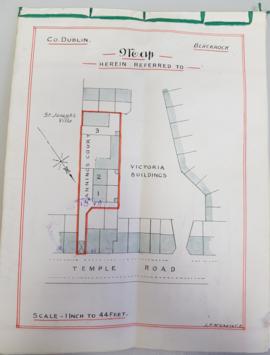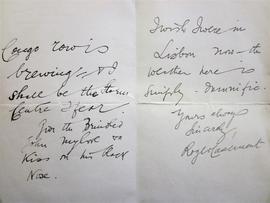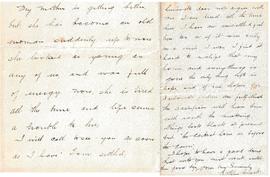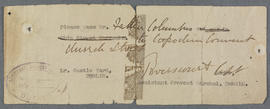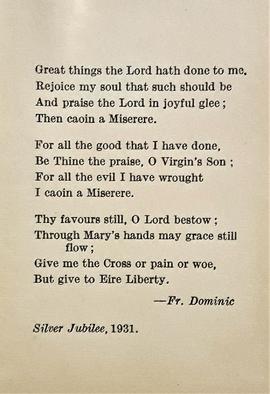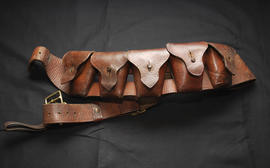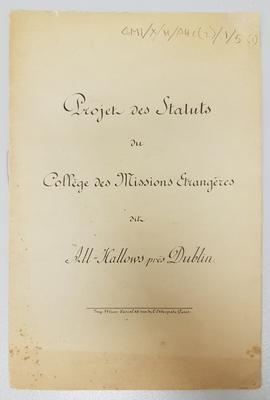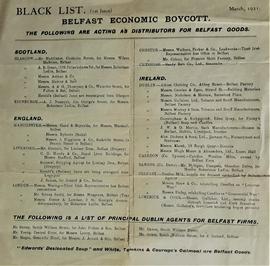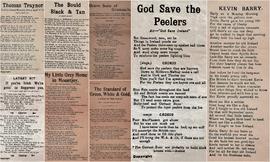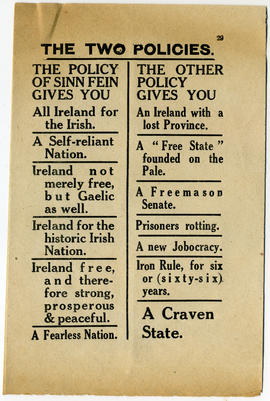Copy letter from Roger Casement, Pentonville Prison, to his chaplain, Fr. E.F. Murnane, regarding the progress of his appeal against the indictment of high treason. With a letter (2 Aug. 1916) from E.F. Murnane, The Presbytery, Dockhead, [Bermondsey, London, S.E.], in the same hand, to George Gavan Duffy regarding Casement’s last hours. Includes a copy extract from a letter from the Prison Chaplain giving a brief account of Casement’s piety before his execution. The file also includes an original letter from Roger Casement, Wellington Club, Grosvenor Place, S.W., to Francis H. Cowper (16 Dec. 1903) declaring that all is well him ‘but fearful Congo row is brewing and I shall be the storm centre I fear’. He adds 'Give the brindled John my love and a kiss on his black nose. I wish I were in Lisbon now …’. The ‘brindled John’ was presumably a domestic cat or dog owned by Cowper; brindled referring to a specific type of patchy colouring most commonly associated with the patterned fur of cats. It is unknown how this letter was acquired by the Capuchin friars but it is likely that it was given to Fr. Albert Bibby OFM Cap. for safekeeping by an nationalist acquaintance.

